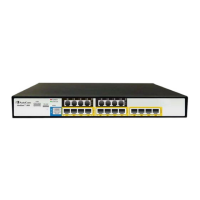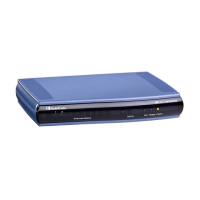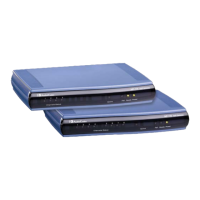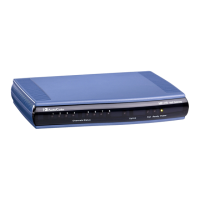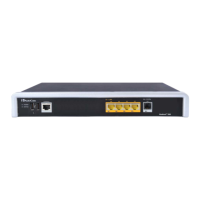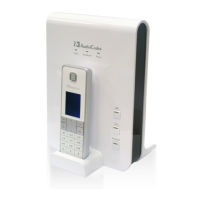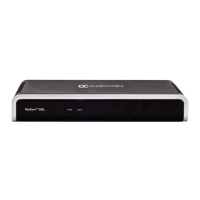User's Manual 208 Document #: LTRT-27045
Mediant 1000B Gateway & E-SBC
• Set the MediaChannels parameter to the maximum number of required IP media
channels, regardless of the module from where the channels are obtained.
Note: Setting the MediaChannels parameter to a value that is g
available DSP resources that is provided by the MPM module(s) can result in the
"stealing" of DSP resources from the B-channels of the PRI spans.
• Set the IPmediaChannels parameter to the number of DSP channels that you
want to “borrow” (use) from each PRI module. The setting below shows an
example of borrowing DSP channels from PRI modules #1 and #2:
[IPMediaChannels]
FORMAT IPMediaChannels_Index = IPMediaChannels_ModuleID,
IPMediaChannels_DSPChannelsReserved;
IPMediaChannels 1 = 1, 15;
IPMediaChannels 2 = 2, 10;
[\IPMediaChannels]
Note:
• The value of IPMediaChannels_DSPChannelsReserved must be in multiples of 5.
• By default, the MPM module is set to the maximum number of IP media channels.
Therefore, there is no need to define it with the IPmediaChannels parameter.
• By default, the IPMediaChannels_DSPChannelsReserved parameter for all PRI
modules is set to 0 (i.e., no "borrowing" of IP media channels).
14.10 Configuring Media (SRTP) Security
The device supports Secured RTP (SRTP) according to RFC 3711. SRTP is used to
encrypt RTP and RTCP transport for protecting VoIP traffic. SRTP requires a cryptographic
key exchange mechanism to negotiate the keys. To negotiate the keys, the device
supports the Session Description Protocol Security Descriptions (SDES) protocol
(according to RFC 4568) . The key exchange is done by adding the 'a=crypto' attribute to
the SDP. This attribute is used (by both sides) to declare the various supported cipher
suites and to attach the encryption key. If negotiation of the encryption data is successful,
the call is established.
SRTP supports the following cipher suites (all other suites are ignored):
AES_CM_128_HMAC_SHA1_32
AES_CM_128_HMAC_SHA1_80
When the device is the offering side (SDP offer), it can generate a Master Key Identifier
(MKI). You can configure the MKI size globally (using the SRTPTxPacketMKISize
parameter) or per SIP entity (using the IP Profile parameter, IpProfile_MKISize). The length
of the MKI is limited to four bytes. If the remote side sends a longer MKI, the key is ignored.
Note:
• Gateway application: The device only initiates the MKI size.
• SBC application: The device can forward MKI size transparently for SRTP-to-
SRTP media flows or override the MKI size during negotiation (inbound or
outbound leg).

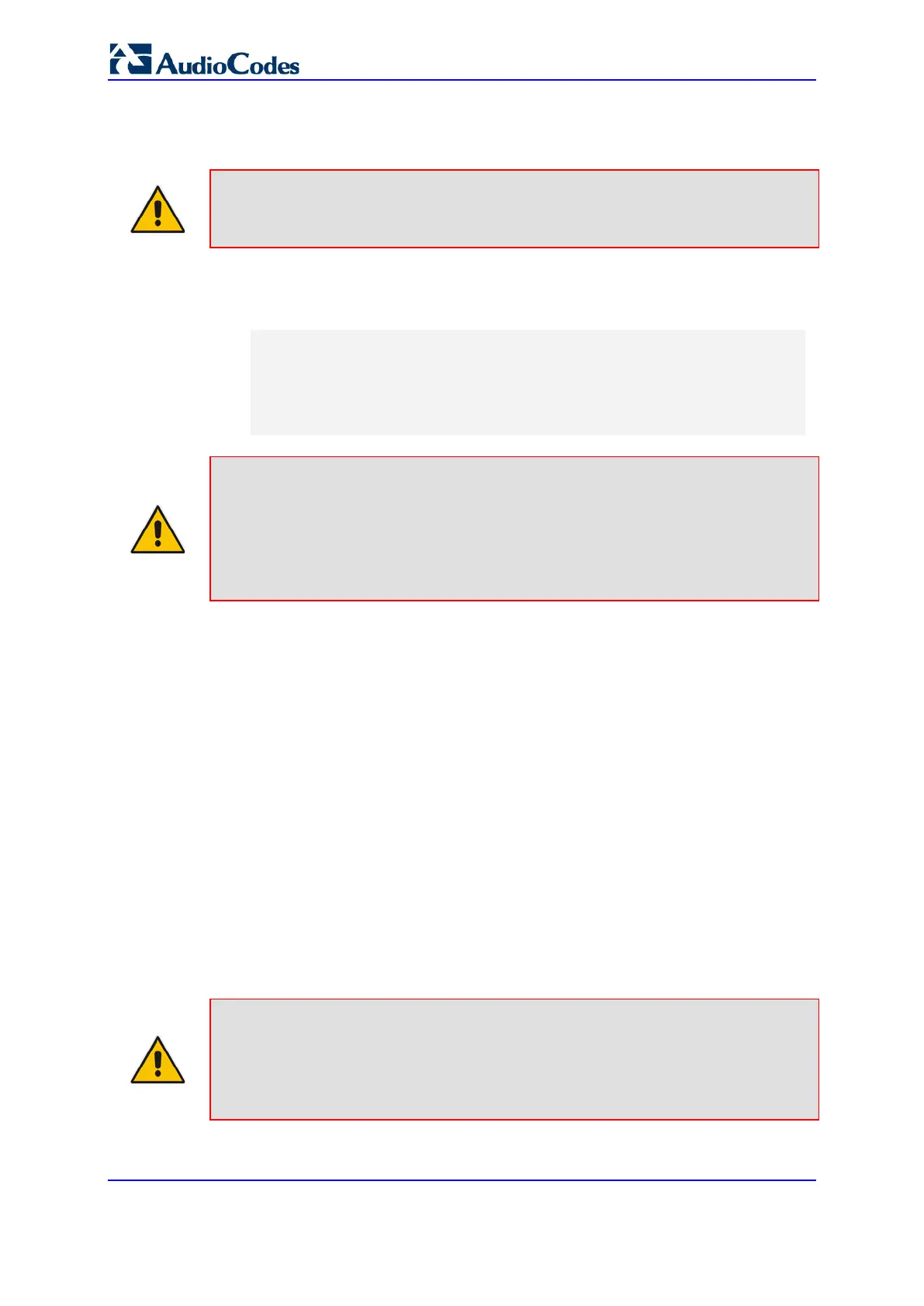